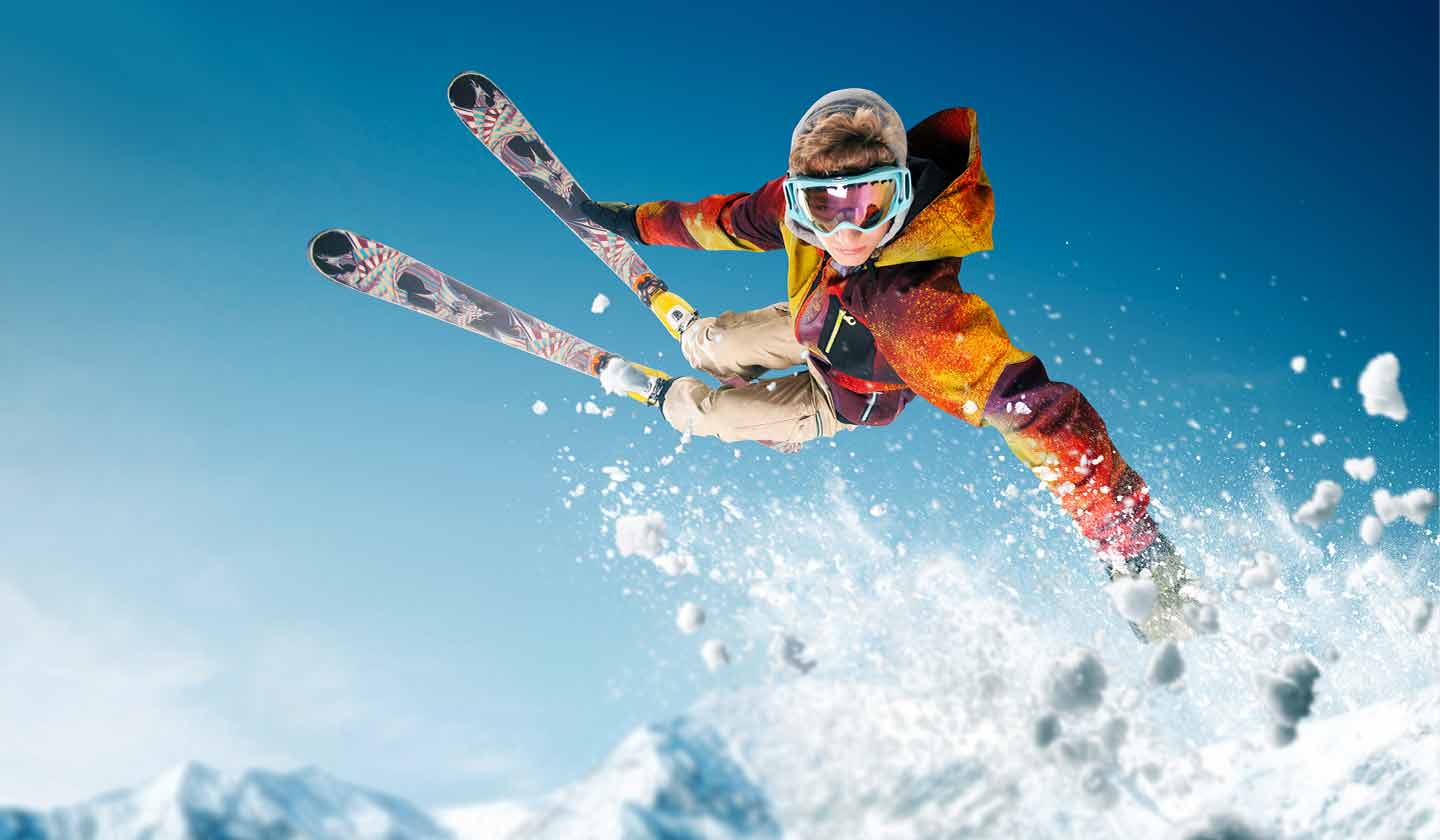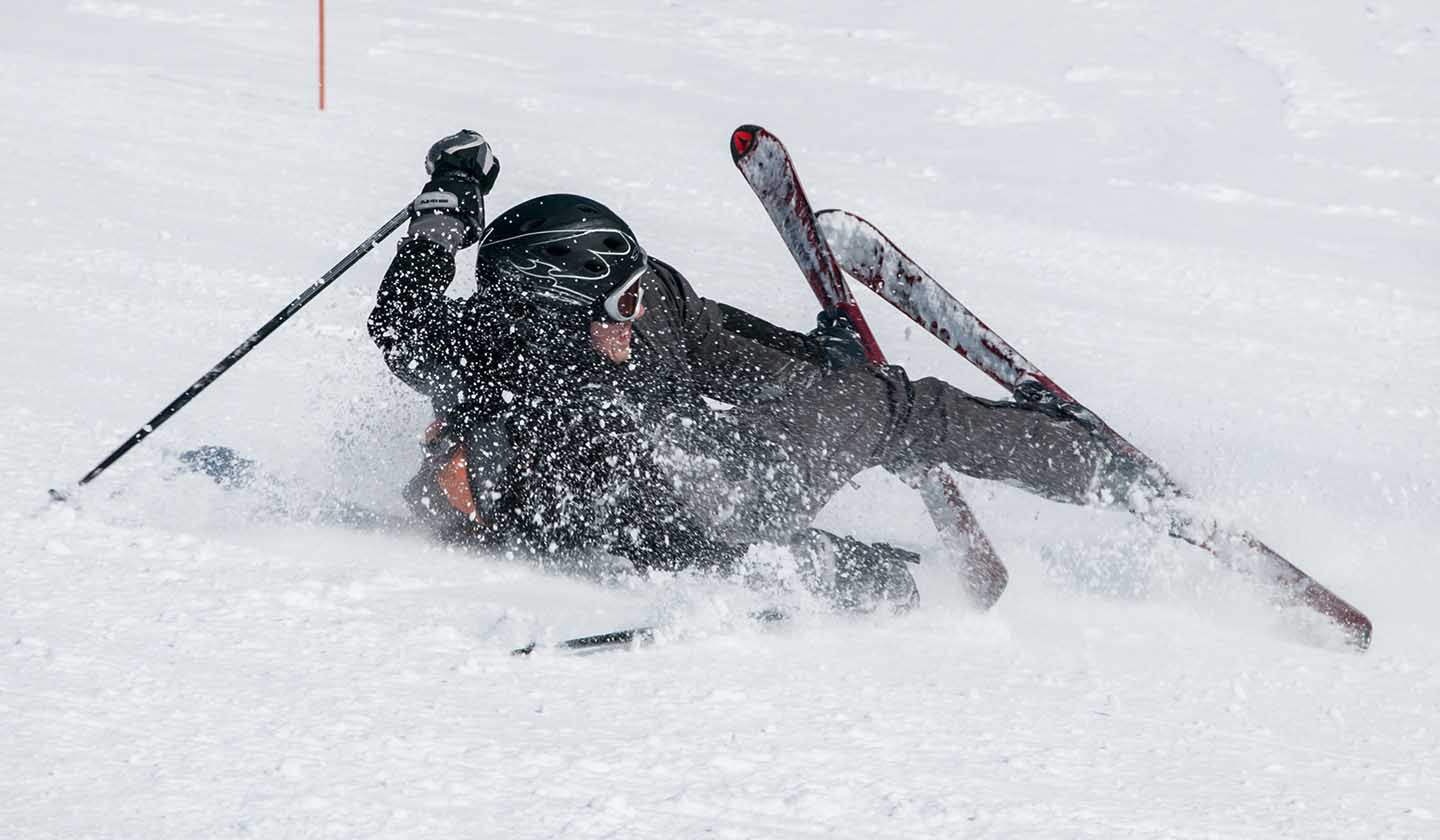Physical exercise
Be a champion in the snow

The practice of winter sports is good for your health, but it is not risk-free. Before heading out to the snow, take precautions and equip yourself with information on the most appropriate actions for a healthy snow sliding.

Putting your body to the test
Winter sports are a physical activity which is usually practised at altitude, thus requiring higher levels of effort. From ice skating to skiing, snowboarding and some more extreme sports, everyone puts their muscles and joints, as well as their circulatory and respiratory systems to test.

Taking the safe approach
The body must be prepared to have fun safely and prevent the risks associated with activities in the snow. Therefore, some precautions must be taken to prevent:
1. Muscle and joint injuries due to exertion and falls:
- Stay in shape throughout the year. The better the physical form, the greater the resistance;
- Warm up, exercise muscles and joints before starting any physical activity;
- If necessary, protect the joints with elastic wristbands and padded knee pads;
- Eat a diet rich in energy sources such as carbohydrates (pasta, cereals) and proteins (meat, fish, eggs) to compensate for physical wear and tear. In certain situations, strengthening the immune system by taking dietary supplements may be recommended by a health professional. Ask for information at your pharmacy.
2. Dehydration - physical effort increases the loss of body fluids:
-
Drink fluids frequently, especially hot ones, before, during and after sport.
3. Chilblains, caused by sudden changes from cold to heat:
- Dress in layers, with light and warm clothing, to adapt gradually to temperature changes;
- Remember to wear a hat and gloves, to protect your extremities.
4. Sunburn - ultraviolet radiation is more intense at altitude, in addition to being reflected by snow, thus affecting the skin:
- Apply sunscreen with SPF 30 or higher over the skin that is going to be exposed and do not forget about your lips and ears; reapply throughout the day; wear sunglasses.
5. Risks associated with a drop in body temperature due to heat loss and freezing, which results from direct contact with snow, mainly affecting the extremities - hands, feet, nose, and ears:
-
Wear comfortable waterproof clothing and shoes;
-
Keep the equipment in good condition;
-
Do not practice sports by yourself nor stay away from your group

A little help from the pharmacy
Playing sports is healthy as long as the necessary preventive measures are taken. At your local pharmacy you will find the best information on how to practice winter sports safely and in a healthy way. You will also find guidance on the most suitable products to take with you when going to the snow. Before departure, ask your pharmacist for advice. And happy holidays!
Sources
iSaúde
Farmácia Distribuição Magazine
Também lhe poderá interessar
Supplements
Attention! Beware of supplementation in sport
Prevention






